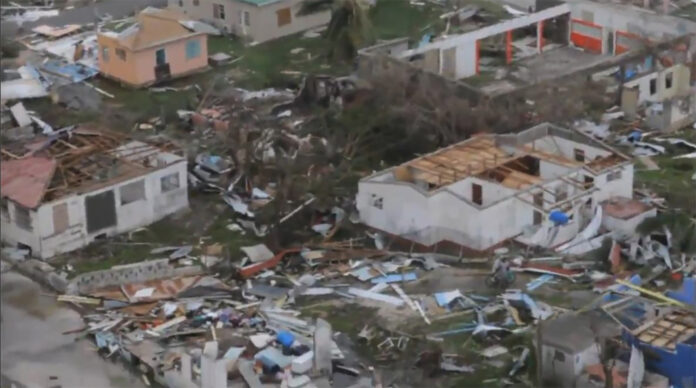
By Shermain Bique-Charles
The six-month Atlantic hurricane season began yesterday, and the National Office of Disaster Services (NODS) say they are ready for any inclement weather, especially as forecasters say there are already two potential storms brewing to kickstart the season.
Sherrod James, the Acting Director of NODS, told Observer that the organisation never stops preparing for the season ahead.
“We have been engaging. We never stop planning. We are always reviewing plans and working with partners at all levels,” James said.
At a regional level, talks have been ongoing with the World Food Programme, the Caribbean Disaster Emergency Management Agency (CDEMA), UNICEF, the Caribbean Development Bank, and the Caribbean Catastrophe Risk Insurance Facility.
And, at a national level, NODS have been working to ensure telephone systems are up and that there is a backup system in place in the event of a major disaster.
“We just recently installed a system to add to our telecommunications repertoire. We are working with our early warning systems, we are reviewing operational needs with our partners in the public sector, Defence Force, Fire Department, Solid Waste…all these things are happening,” he told the Observer AM show.
Training in shelter management is currently underway, another aspect that NODS said will ensure its readiness.
“That training, which includes about 35 persons, includes simulation exercises and drills. We will increase that training next week in damage assessment…we are doing what we have to do,” he added.
Residents are also encouraged to ready themselves by having relevant conversations with their families and friends, and having a comprehensive plan in place for where they should go in the event of impending disaster.
“Stock up on emergency supplies like non-perishable food, water, medication, flashlight, first aid kit, baby and children’s supplies, if necessary, and personal hygiene items, and ensure that properties are safe,” a statement issued yesterday by NODS said.
The inspection of emergency shelters has also begun with approximately 60 facilities scrutinised already.
Work also continues with partner agencies like the World Meteorological Organisation (WMO) to look at reducing the effects of flooding in various communities.
Meanwhile, the disaster office has been working to upgrade its Early Warning System through the installation of radio interrupt equipment as part of the Common Alerting Protocol (CAP) which sends an alert about a pending hazard.
Equipment has arrived in the country that will be installed at various private radio stations to allow emergency alerts to interrupt regular programming. State-owned ABS Radio and Television already has the equipment in place.
The CAP is already operational in Antigua and Barbuda via an app on smartphones; it also sends messages through email.
The current season is predicted to be above normal with 14 to 21 named storms, six to 10 hurricanes, and three to six major hurricanes.
One system is expected to develop near southeastern Mexico and western Cuba over the next few days, and AccuWeather meteorologists say there is a risk that the tropical feature could approach Florida and the Bahamas over the weekend and early next week.
If it becomes a named tropical storm, it would be Alex. Beyond that, the next storm’s name is Bonnie, followed by Colin, Danielle, and Earl.
The second potential system is located in the Atlantic but only has a 10 percent chance of forming, the USA’s National Hurricane Center said Wednesday.
The 2022 Atlantic hurricane season officially ends on November 30.
